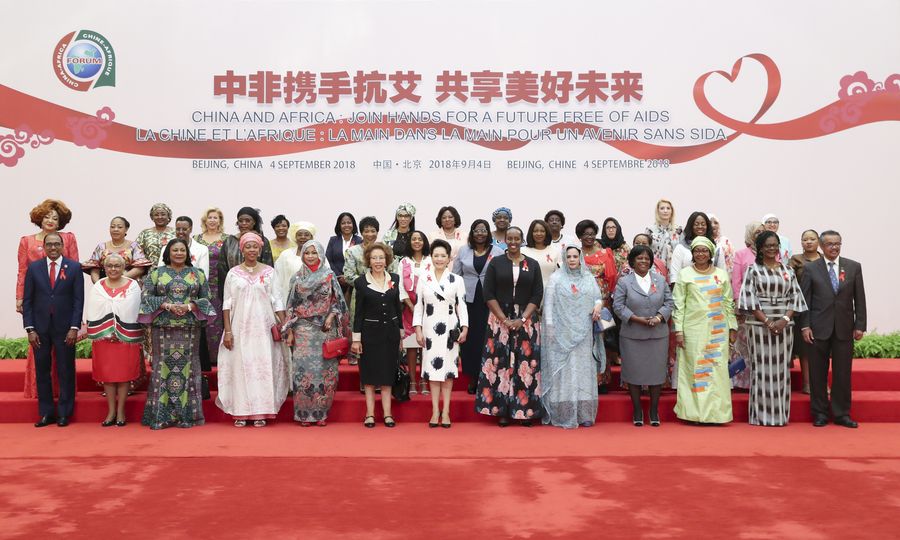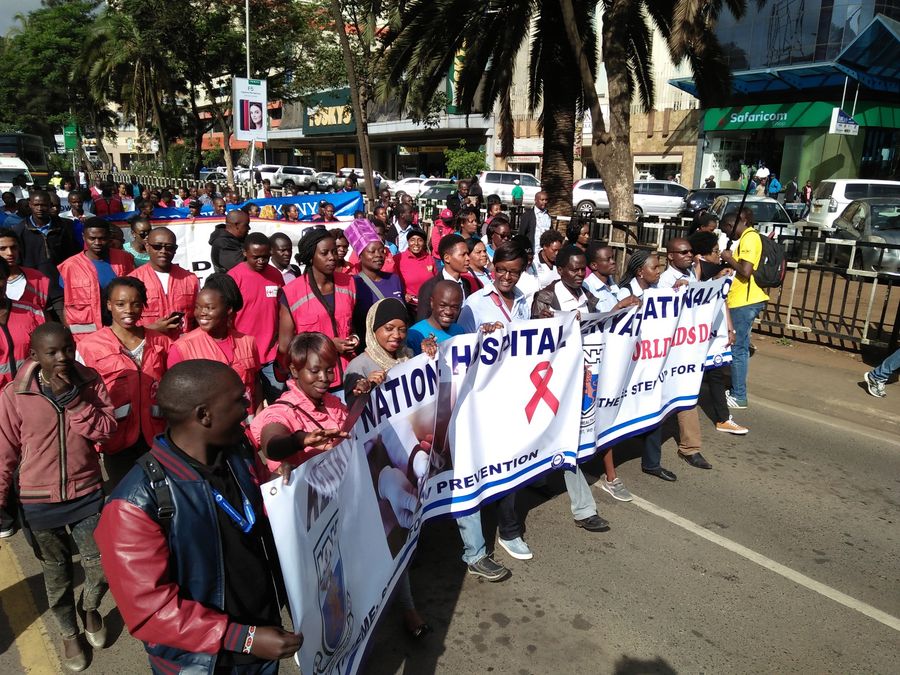China has been making a contribution to Africa's efforts to combat HIV/AIDS, tuberculosis, and malaria on the continent, an African Union official says.
ADDIS ABABA, Nov. 1 (Xinhua) -- China has been making direct and indirect contribution to Africa's efforts in the fight against HIV/AIDS, tuberculosis, and malaria on the continent, an official of the African Union (AU) said.
Speaking to Xinhua exclusively on Wednesday, Benjamin Djoudalbaye, AU Acting Head of HIV/AIDS, TB, Malaria, noted that China's contribution to the Global Fund, which is to fight against the major deadly diseases, is one of the indirect support areas in the fight against HIV/AIDS on the African continent.
The World Health Organizations (WHO) says HIV continues to be a major global public health issue. In 2018, some 770, 000 people died from HIV-related causes globally.
There were approximately 37.9 million people living with HIV at the end of 2018, with 1.7 million people becoming newly infected in 2018 globally. And 62 percent of adults and 52 percent of children living with HIV were receiving lifelong antiretroviral therapy (ART) in 2018.
Africa is the most affected region, with about 25.7 million people living with HIV in 2018; and the continent accounts for almost two thirds of the global total of new HIV infections, according to WHO.

Peng Liyuan (C, front), the wife of Chinese President Xi Jinping, together with spouses of African heads of state and government attend a China-Africa meeting on HIV/AIDS prevention and control in Beijing, capital of China, Sept. 4, 2018. (Xinhua/Ding Haitao)
Reiterating that Africa is one of the most affected regions by HIV/AIDS in the world, the AU Acting Head of HIV/AIDS, TB, Malaria said the continent has achieved remarkable results in the past two years, despite the success stories are with disparities.
"For the last couple of years, I think we are on the (trajectory) in controlling HIV today on the continent, " the official said, adding people have access to treatments and efforts were made to reduce maternal mortality and mother to child transmission of HIV.
"The new infections are going down in parts of the continent but despite all these efforts the disparities exist," he said.
In addition to the indirect contribution through the Global Fund, China forged a very good partnership with the 55-member pan-African bloc, whereby it provides supports, including among others training for experts who have indispensable role in the fight against the HIV/AIDS.
"For us, as the African Union, we have a very good collaboration with China. And recently two of my two members went to China and were trained on HIV control. So, this type of action programs do exist between China and the African Union Commission," he said.

Participants take part in a walk to celebrate World Aids Day in Nairobi, capital of Kenya, Dec. 1, 2017. (Xinhua/Charles Onyango)
Reiterating that Africa has achieved remarkable results in the anti-HIV/AIDS interventions, the acting head mentioned Botswana and Rwanda as two success stories on the continent.
"I can tell you two success stories; a country like Botswana has virtually eliminated mother to child transmission of HIV; that is a success story; and the second success story is that a country like Rwanda will control HIV, as a program of Public Health, before 2030," Djoudalbaye has noted.
Speaking of the challenges, Djoudalbaye says funding and resistance to the drug are among the two major challenges in Africa, while the health system is also there as far as the fight against HIV/AIDS is concerned.



